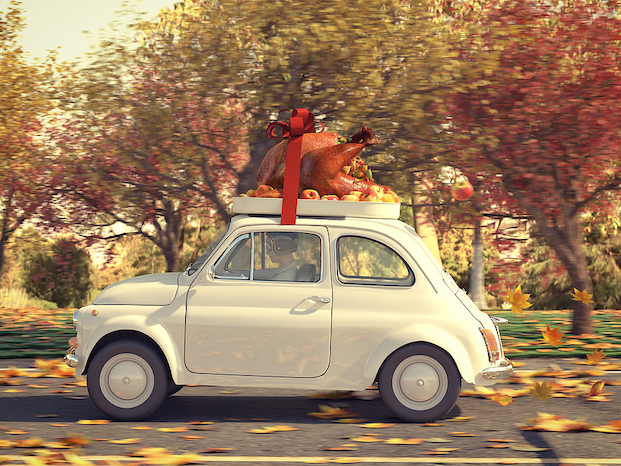Driving this Thanksgiving: Safety Tips That Save Lives
November 9, 2022
Safe driving saves lives. If you’re traveling this holiday season, follow these tips to protect yourself and others on the road with you.
Traveling during the holidays brings us closer to family and loved ones, but sometimes, traveling also puts us in harm’s way. According to the National Safety Council, 406 people died in traffic accidents during the Thanksgiving weekend in 2019. This number is not atypical for the holiday season: NSC consistently estimates that between 400 and 500 people will die over the 4-day period we celebrate Thanksgiving.
Take steps to protect yourself and your loved ones. The following tips can help you avoid accidents that can lead to injuries and even fatalities.
Wear a Seat Belt
Seat belts save lives. According to the United States Department of Transportation, seat belts saved nearly 15,000 people who survived car accidents in 2017. Whether you’re going to see a relative in your town or traveling hundreds of miles from home, wear a seat belt. Be sure the other people in your vehicle buckle up as well.
Pay Attention to the Weather
Thanksgiving weather can vary, from snowy to icy to beautiful and sunny. Pay attention to the weather at your point of departure, your destination, and the route in between. Watch for low temperatures, chances of precipitation, and more.
Know Your Route
How will you be arriving at your destination? If you’re using a GPS device or GPS on your smartphone, plug in the route before you start driving.
Avoid Drowsy Driving
Drowsy driving caused over 600 traffic deaths in 2020. Driving drowsy can reduce your reaction time and cause you to fall asleep behind the wheel. To avoid drowsy driving:
- Drive with a partner and take turns driving
- Get out to walk around periodically
- Avoid driving at times when you would usually be sleeping
- Drink coffee or another caffeinated beverage
- If you’re feeling tired, roll down your window to increase your alertness
- Listen to music or talk to people in the car with you to increase your alertness
- Divide long journeys into segments and know when to stop for the night
Put Children in Appropriate Seat Restraints
Children are required to ride in seat restraints. The youngest children must ride in rear-facing car seats until they graduate to front-facing car seats and, finally, booster seats. Pay attention to the weight requirements for each type of car seat, and know the seat restraint laws in your state.
Watch Your Speed
Of course, you should follow the posted speed limits along your route, but sometimes driving the speed limit is too fast for your journey. The speed limit may be dangerously fast if the road is icy, wet, snowy, or in poor condition. Use common sense when selecting your speed. Don’t prioritize a quick journey over the safety of you and your passengers.
Don’t Drive Distracted
Over 3,000 people die in distracted driving-related accidents every year. Pull over if you must take a call, send, or read a text message while driving. If someone is in the car, let them take the call, change the radio station, read the text message aloud, and adjust your GPS device. Never read or send a text message while driving.
Drive Sober
In 2019, nearly 1/3 of traffic fatalities involved alcohol. Alcohol-related traffic deaths are entirely preventable.
It’s common for people to have a drink or two when at a relative’s house for a holiday celebration. Before arriving at your destination, designate a sober driver – or plan to stay the night.
Update Your Auto Insurance Policy
Take steps to protect yourself this holiday season. Call your insurance agent to check (and update) your auto insurance policy.
